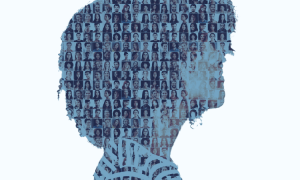
As COVID-19 continues to sweep the nation, courthouses are grappling with decisions on how best to proceed with court operations. Many in the legal community are wondering what a return to “normal” will look like for the in-person jury trial, especially while COVID is still an issue. And more importantly, how will that impact case outcomes?
In a recent HawkPartners survey of mock jurors, we found that the majority are likely to report for jury duty if called. But a significant minority are not so sure.
- 15% of mock jurors are likely to go to an indoor movie during the pandemic.
- 33% of mock jurors would eat at an indoor restaurant during this time.
- 75% are likely to vote in person.
- And 59% of jurors are likely to report for jury duty if called.
On the bright side, the data suggests a majority of potential jurors prioritize their civic duty. On the other hand, the data suggests that up to 40 percent of the juror pool may opt-out when called for in-person jury duty.
On the bright side, the data suggests a majority of potential jurors prioritize their civic duty. On the other hand, the data suggests that up to 40 percent of the juror pool may opt-out when called for in-person jury duty.
Of course, this begs the question of which jurors are likely to be included in the jury pool for an in-person trial during this pandemic. Those who are elderly are less likely to make up the COVID jury, as well as those who are immunocompromised. In addition, those who are caretakers – who are more likely to be female, possibly unemployed – may be more likely to opt-out of jury duty. Furthermore, those who are more politically liberal or more science-oriented are more apt to seek an excusal from jury duty, taking quarantine and other COVID-19 safety measures more seriously. And, of course, this is likely to vary by location, depending on how communities are approaching the virus and/or how hard the community has been impacted.
All this is to say that the COVID jury is likely to be different than in the past. It is no longer possible to rely on a traditional understanding of the jury makeup when crafting communications. An effective COVID trial strategy cannot be designed without first understanding the new COVID jury – only then can it be tailored to optimize the chances of a favorable verdict. More than ever, it will be important to conduct pre-trial research with a population representative of the less-than-representative COVID jury.
An effective COVID trial strategy cannot be designed without first understanding the new COVID jury – only then can it be tailored to optimize the chances of a favorable verdict.
When recruiting mock jurors, it is critical to include screening questions that identify those who might be placed on a jury during the pandemic. In light of COVID, most mock trials have shifted online, even for trials expected to take place in-person. But those willing to participate in an online exercise during COVID are not necessarily representative of those who would serve in person, so this screening is even more important.
Timing is another consideration. The new jury makeup is shifting quickly along with the ever-changing pulse of the pandemic. Research must be performed as close to the time of the trial as possible to best identify and understand the likely juror, at that specific point in time.
The Constitution promises a right to a speedy trial and a jury of one’s peers. While the legal system is doing its best to fulfill those promises in this new world, the reality is that if trials are to happen anytime soon in an actual courtroom, the jury may look a little different. Rather than a jury of fellow citizens, it becomes a jury of fellow citizens who are willing to accept some risk of contracting COVID-19.
Constitutionality aside, it is with that modern jury in mind that case strategy must be developed. To rely on notions of a typical jury or conduct research among a typical respondent pool would be a missed opportunity. By instead conducting focused research, trial communications can be optimized to resonate among the jury of now.
